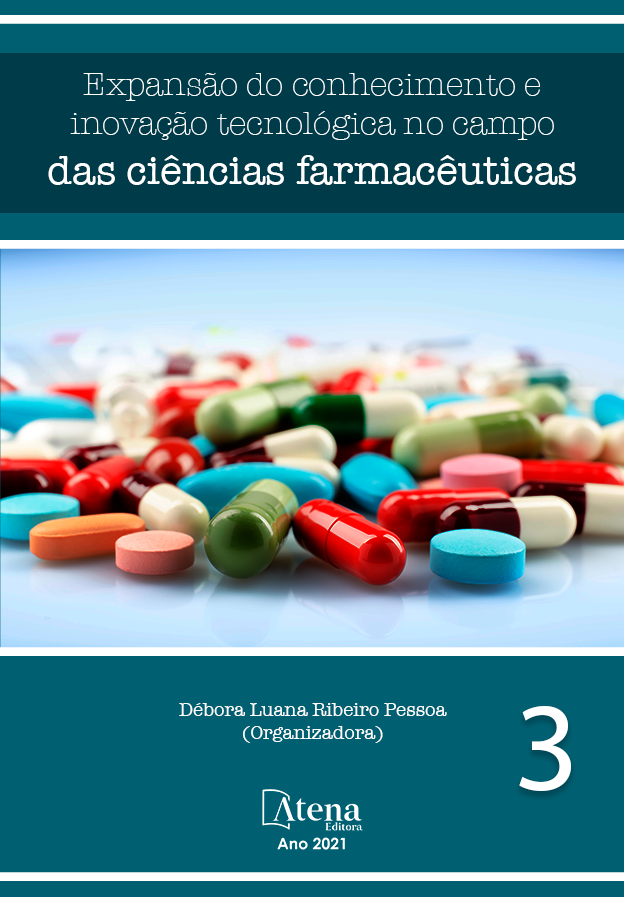
ATENÇÃO FARMACÊUTICA: OS IMPACTOS DA POLIFARMÁCIA NA EFICÁCIA DO TRATAMENTO DA HIPERTENSÃO ARTERIAL E DIABETES
O tratamento de doenças crônicas não transmissíveis, a exemplo da Hipertensão Arterial Sistêmica (HAS) e a Diabetes Mellitus (DM) encontra diversos obstáculos que podem reduzir sua eficácia, um deles atribuímos à polifarmácia. A associação de medicamentos reduz a adesão ao tratamento, tanto pela dificuldade em administrar os diferentes horários, quanto pelos efeitos das interações medicamentosas, causando Eventos Adversos (EA). Considerando que a polifarmácia é uma realidade do tratamento de HAS e DM no âmbito da Atenção Primária do Sistema Único de Saúde (SUS) (BRASIL, 1990), foi elaborado um projeto de pesquisa no universo da Atenção Farmacêutica para fazer acompanhamento farmacoterapêutico, com a proposta de melhorar a qualidade de vida dos pacientes, visando minimizar danos e avaliar possíveis EA. Este projeto foi desenvolvido e aplicado em três etapas, inicialmente identificando os EA e posteriormente, analisando os dados obtidos para planejar e monitorar uma possível intervenção farmacêutica. Na última etapa foram feitas as intervenções, propondo ações que facilitassem a administração dos medicamentos, com o objetivo de minimizar ou sanar os EA relatados. O público participante incluiu pacientes (n=24) acompanhados no período de julho de 2016 a fevereiro de 2017. A coleta de dados deu-se através de questionários estruturados com variáveis qualitativas e quantitativas. Dos dados obtidos 41,67% dos pacientes relataram algum EA; 37,5% relataram utilizar quatro ou mais medicamentos, 29,17% utilizam três medicamentos e 33,34% utilizam menos de três medicamentos no tratamento. Dos pacientes que usam quatro ou mais medicamentos, 66,67% relataram EA, enquanto dos pacientes que utilizam três medicamentos ou menos 26,67% apontaram EA. Em relação ao grupo de pacientes que relatam EA, 60% utilizam quatro ou mais medicamentos. Observou-se que a ocorrência de EA pode estar associada ao número de medicamentos utilizados. Nesse sentido, as intervenções farmacêuticas podem melhorar a adesão e a eficácia do tratamento.
ATENÇÃO FARMACÊUTICA: OS IMPACTOS DA POLIFARMÁCIA NA EFICÁCIA DO TRATAMENTO DA HIPERTENSÃO ARTERIAL E DIABETES
-
DOI: 10.22533/at.ed.5562127097
-
Palavras-chave: Atenção Farmacêutica; Hipertensão; Diabetes; Evento Adverso; Polifarmácia
-
Keywords: Pharmaceutical Care; Hypertension; Diabetes; Adverse Events; Polypharmacy
-
Abstract:
The treatment of chronic non-communicable diseases, such as Systemic Arterial Hypertension (SAH) and Diabetes Mellitus (DM), encounters several obstacles that can reduce its effectiveness, one of which we attribute to polypharmacy. The association of medications reduces adherence to treatment, both due to the difficulty in managing the different schedules, as well as the effects of drug interactions, causing Adverse Events (AE). Considering that polypharmacy is a reality in the treatment of SAH and DM within the scope of Primary Health Care of the Unified Health System (SUS- Brasil), a research project was developed in the universe of Pharmaceutical Care to do pharmaco-therapeutic follow-up, with the proposal to improve the quality life of patients, aiming to minimize damages and evaluate possible AE. This project was developed and applied in three stages, initially identifying the AEs and later, analyzing the data obtained to plan and monitor a possible pharmaceutical intervention. In the last stage, interventions are made, proposing actions that facilitate the drugs administration, with the aim of minimizing or remedying the reported AEs. The participating public included patients (n = 24) followed up from July 2016 to February 2017. Data collection took place through structured questionnaires with qualitative and quantitative variables. Of the data obtained, 41.67% of the patients reported some AE; 37.5% reported using four or more drugs, 29.17% using three drugs and 33.34% using less than three drugs in the treatment. Of the patients using four or more drugs, 66.67% reported AS, while of the patients using three or less drugs, 26.67% reported AS. Regarding the group of patients who report AS, 60% use four or more drugs. It is observed that the occurrence of AE can be associated with the number of drugs used, in this sense, pharmaceutical interventions can improve adherence and treatment effectiveness.
-
Número de páginas: 8
- Janaína Dória Líbano Soares
- Viviane Liria Costa de Souza


